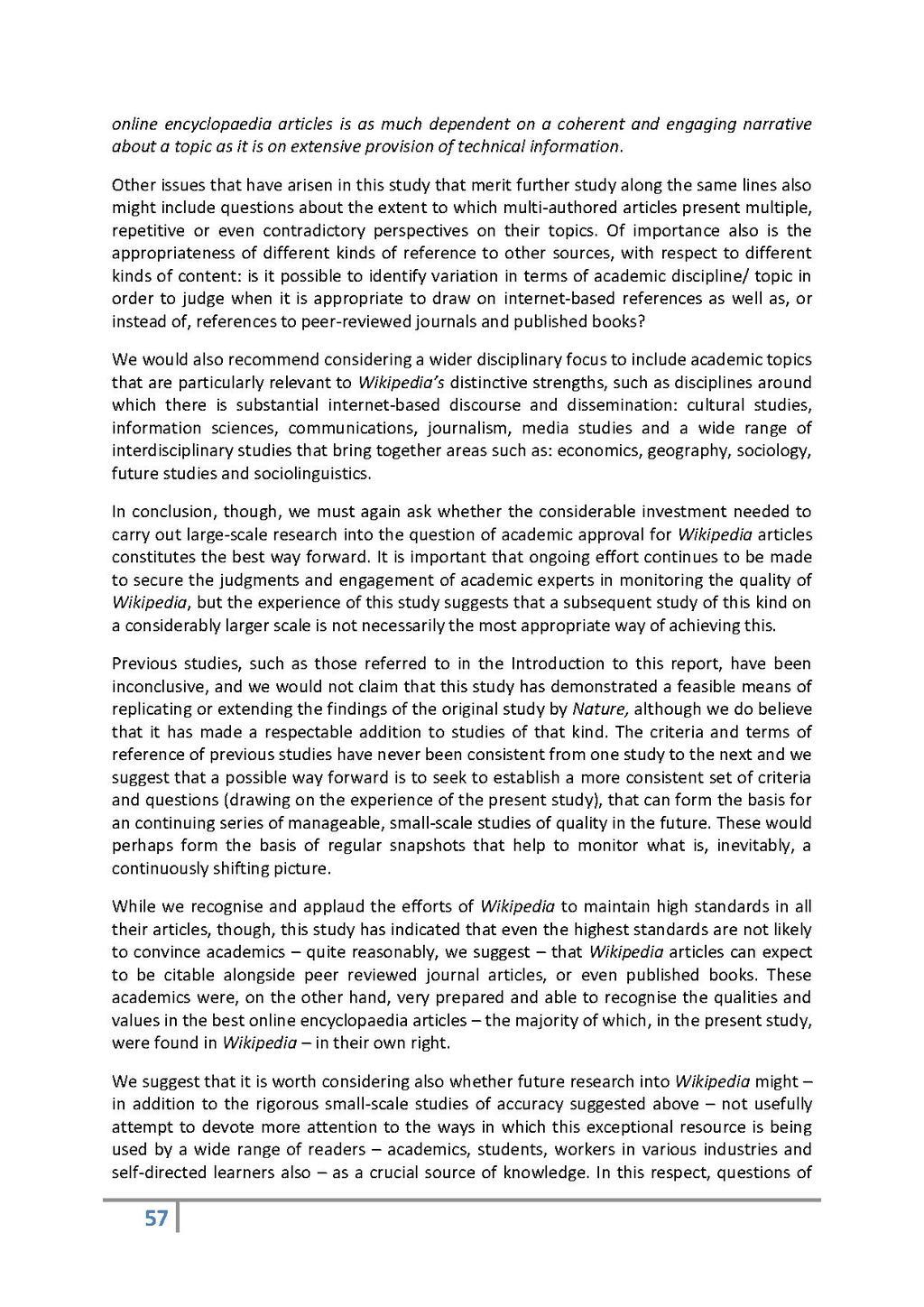online encyclopaedia articles is as much dependent on a coherent and engaging narrative about a topic as it is on extensive provision of technical information.
Other issues that have arisen in this study that merit further study along the same lines also might include questions about the extent to which multi-authored articles present multiple, repetitive or even contradictory perspectives on their topics. Of importance also is the appropriateness of different kinds of reference to other sources, with respect to different kinds of content: is it possible to identify variation in terms of academic discipline/ topic in order to judge when it is appropriate to draw on internet-based references as well as, or instead of, references to peer-reviewed journals and published books?
We would also recommend considering a wider disciplinary focus to include academic topics that are particularly relevant to Wikipedia's distinctive strengths, such as disciplines around which there is substantial internet-based discourse and dissemination: cultural studies, information sciences, communications, journalism, media studies and a wide range of interdisciplinary studies that bring together areas such as: economics, geography, sociology, future studies and sociolinguistics.
In conclusion, though, we must again ask whether the considerable investment needed to carry out large-scale research into the question of academic approval for Wikipedia articles constitutes the best way forward. It is important that ongoing effort continues to be made to secure the judgments and engagement of academic experts in monitoring the quality of Wikipedia, but the experience of this study suggests that a subsequent study of this kind on a considerably larger scale is not necessarily the most appropriate way of achieving this.
Previous studies, such as those referred to in the Introduction to this report, have been inconclusive, and we would not claim that this study has demonstrated a feasible means of replicating or extending the findings of the original study by Nature, although we do believe that it has made a respectable addition to studies of that kind. The criteria and terms of reference of previous studies have never been consistent from one study to the next and we suggest that a possible way forward is to seek to establish a more consistent set of criteria and questions (drawing on the experience of the present study), that can form the basis for an continuing series of manageable, small-scale studies of quality in the future. These would perhaps form the basis of regular snapshots that help to monitor what is, inevitably, a continuously shifting picture.
While we recognise and applaud the efforts of Wikipedia to maintain high standards in all their articles, though, this study has indicated that even the highest standards are not likely to convince academics – quite reasonably, we suggest – that Wikipedia articles can expect to be citable alongside peer reviewed journal articles, or even published books. These academics were, on the other hand, very prepared and able to recognise the qualities and values in the best online encyclopaedia articles – the majority of which, in the present study, were found in Wikipedia – in their own right.
We suggest that it is worth considering also whether future research into Wikipedia might – in addition to the rigorous small-scale studies of accuracy suggested above – not usefully attempt to devote more attention to the ways in which this exceptional resource is being used by a wide range of readers – academics, students, workers in various industries and self-directed learners also – as a crucial source of knowledge. In this respect, questions of
57
